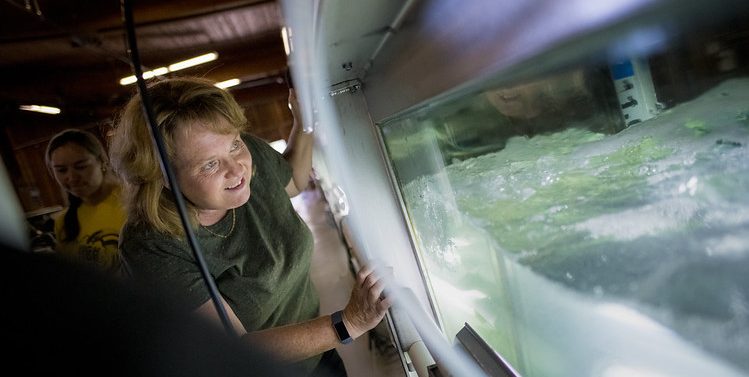KIMBERLY PRATHER
Kimberly Prather is an American scientist who is an Atmospheric Chemist, Distinguished Chair in Atmospheric Chemistry, and a Distinguished Professor at the Scripps Institution of Oceanography and the Department of Chemistry and Biochemistry at UC San Diego. Her work focuses on how human emissions are influencing the atmosphere, climate, and human health. In April 2020, she was elected to membership in the National Academy of Sciences in honor of outstanding contributions to aerosol chemistry. In 2019, she was elected as a member of the National Academy of Engineering. She is an elected Fellow of the American Geophysical Union, the American Association for the Advancement of Science, and the American Academy of Arts and Sciences.

Prather is working to understand the health and environmental impacts of ocean-derived pollutants and toxins in run-off and and outfalls. Her work focuses on studying the ocean-to-atmosphere transfer and subsequent atmospheric transport and extent of human exposure. Her research specifically focuses on measurements of the concentration of particles that are small enough to be inhaled deep into our lungs and impact human health. This represents a new area of research that can be used for alerting the public and predicting days with heavier airborne pollution and bacterial loads, especially during storm events that wash contaminants into the coastal ocean where they can become airborne. She is working collaboratively with a team of interdisciplinary scientists including in the Health Sciences to study the potential health effects of these ocean-derived natural microbes and anthropogenic pollutants under changing climate conditions.
Research Highlight
SeaSCAPE 2019 Summer Experiment
The NSF Center for Aerosol Impacts on Chemistry of the Environment (CAICE) focuses on improving our understanding of how aerosol particles impact the environment, air quality, and climate. SeaSCAPE (Sea Spray Chemistry And Particle Evolution) brought together over 90 NSF CAICE researchers from 12 institutions. Interdisciplinary teams including chemists, microbiologists, and oceanographers spent their summer working in partnership to understand complex ocean-climate-chemistry interactions which will help us understand how ocean microbes and humans are affecting climate.
Read the SeaSCAPE blogs here >>
Images courtesy of UC San Diego Publications/Erik Jepsen. View the Flickr gallery here >>








